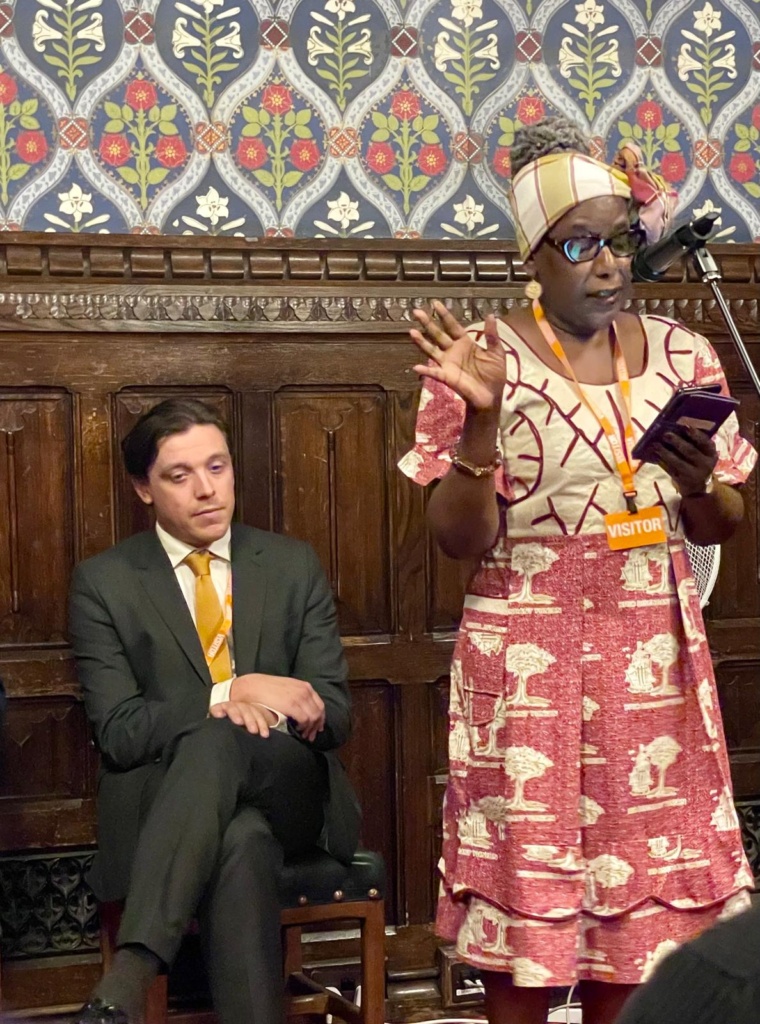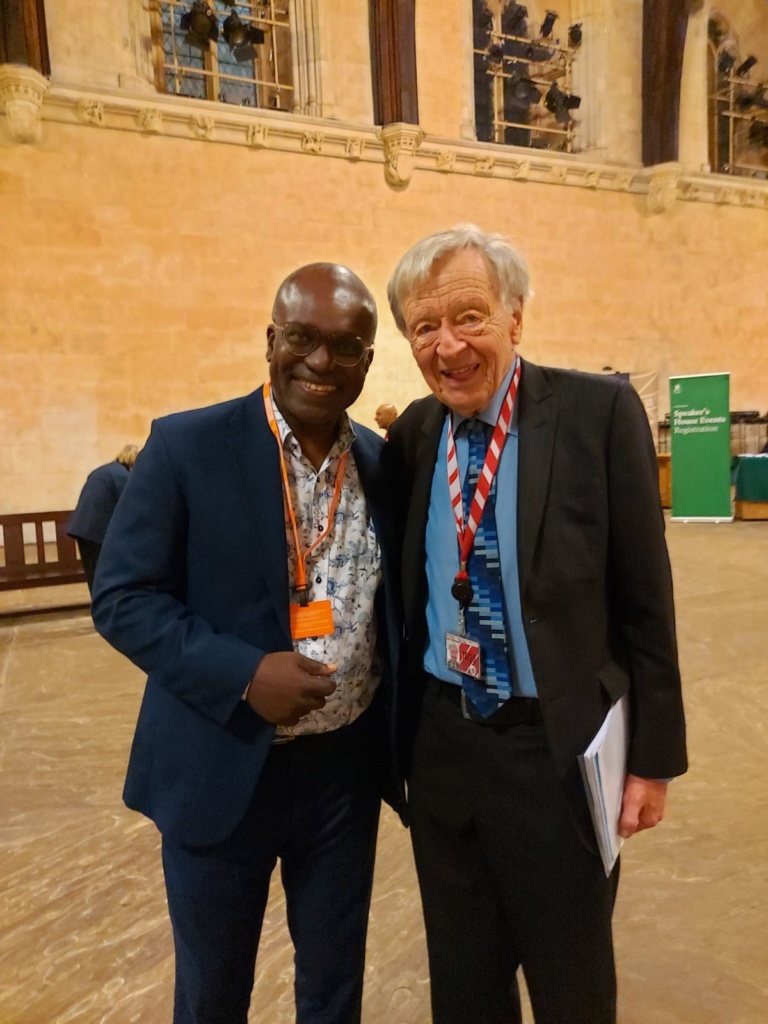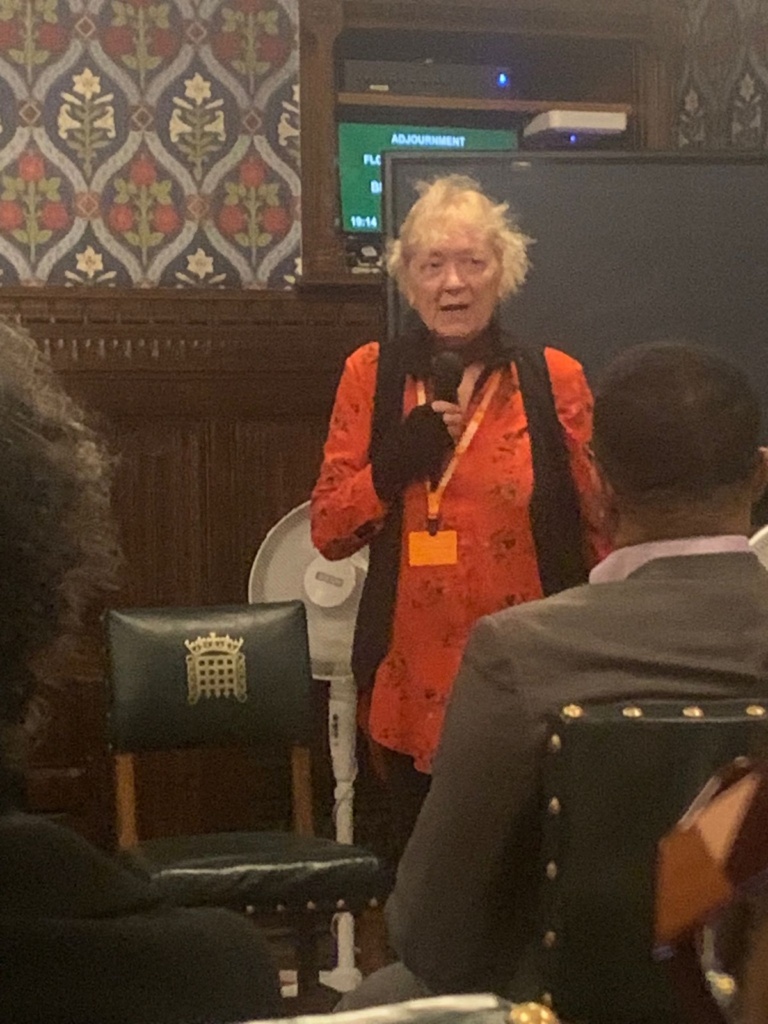
1833 Commemoration Group led by British Professor of Georgian History, Penelope J. Corfield, begins preparations to mark the bicentenary of the Act of Parliament of 1833 abolishing slavery in the British Empire
On Wednesday 16th October 2024, the new Charity known as the ‘1833 Commemoration Group’ was formerly launched In the Jubilee Room at the House of Parliament as a first step in preparations towards celebrating and commemorating the coming bicentenary, in the year 2033, of Britain’s Abolition of Slavery Act. The Charity’s plan of action is dedicated to remembering and learning from the past.
Marsha de Cordova Member of Parliament for Battersea in her welcome address said: “Really pleased that we have a great mix of people here tonight: community activists, journalists, broadcasters. lawyers, historians, including expert on the struggle for abolition and the legacies of slavery; plus teachers, students, parliamentary aides; two delegates from the Quaker Council for Peace & Social Witness; Lord Simon Woolley, Principal of Cambridge University’s Homerton College; James Fookes and two colleagues from the campaigning organisation Anti-Slavery International; and – last but not at all least – Saphia Maxamed and Christina Jordean, the co-Directors of Black Lives Matter. Of course, Black Lives Matter – and that applies not only today but also to the world 200 years ago, at the start of the long campaign to abolish slavery in all its forms. ”
Delivering the main speech,Professor Penelope J. Corfield, the Chair of the Charity and Author of ‘The Georgians: The Deeds & Misdeeds of C18th Britain’ said: “We are committed to the principle that no human should own another human – and should not traffic fellow humans into slavery! and that is why we want to consult with you on how we should commemorate in 2033 the 200th anniversary of the 1833 Act that declared slavery illegal in Britain and its dominions. In particular, we want to celebrate the ‘rainbow coalition’ of campaigners who fought over the years to oppose slavery root and branch. They included not only well-known British liberals but African campaigners, Jamaican rebels, and, interestingly, hundreds of women’s groups across the UK, coordinated by the doughty Eliza Heyrick. She became a Quaker (the Quakers were very active in anti-slavery) and in the 1820s she coordinated her groups to hold local meetings, educate public opinion – and to send petitions to parliament – all of which they did.
BUT we are not seeking to commemorate 1833 in a spirit of complacency. The Act was controversial in its own day; and it did not immediately end the scourge of slavery. Instead. it teaches us an important lesson not just in politics but in life. It’s important not only to adopt the right policy but also to make sure that it’s fully implemented. Slavery is proving very hard to eradicate – worldwide. After all, the United Nation’s Universal Declaration of Human Rights (1948) solemnly declared in Article IV that slavery must cease. But it hasn’t. So, we view this as a vital moment to educate people in the continuing campaigns to achieve genuine freedom and equality between all fellow humans – and to eradicate slavery.So, while we want some form of public monument we want to link it to a website, which will have full information not just about the pros and cons of the 1833 legislation – but also about continuing struggles for liberation today.
So, my third and last big point is to stress the importance of understanding history.People sometimes say: ‘Oh we don’t learn from the past’. They probably mean that humans often don’t learn very sensibly from the past. But we have to try. After all, we don’t learn from the future. The past is a huge reservoir of information and examples of how the human journey has got to this point in time. So, it’s well worth our attention. Let’s celebrate good deeds and learn from bad ones. And let’s get everyone to join us. 2033 here we come … and let’s really end human slavery once and for all”.
Speaking on “The Vital Importance of Not Forgetting” Lawyer and Historian, Dele Ogun, said:“It will be a surprise to many to know that the Act of 1807 which abolished the slave trade was in fact the second time this country was passing such a law; the first occasion was following the Norman Conquest of 1066 when the ninth of the ‘Laws of William the Conqueror’ proclaimed, ‘I prohibit the sale of any man by another outside the country on pain of a fine to be paid in full to me’”.
Other speakers on the occasion included Ms Asher Craig of the Bristol Legacy Foundation, Ms Iyamide Thomas of the Krio People of Sierra Leone , two important centres in the history of the slave trade and its abolition.


Kindly follow us on twitter:@AfricanVoice2









